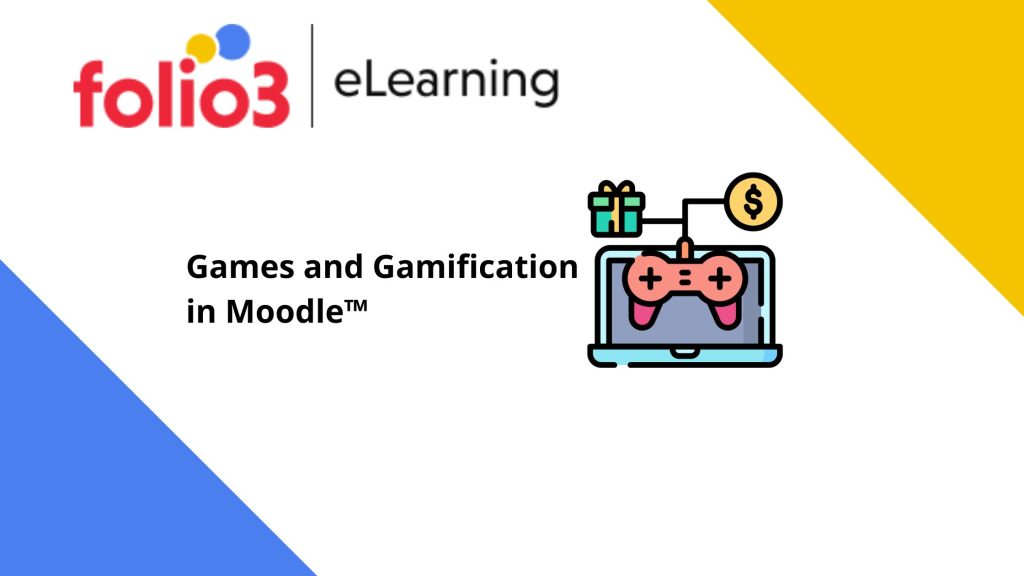
Gamification In Moodle And Games
Using game mechanics and games, gamification in Moodle is one of the best methods to engage and inspire students. Let’s quickly explain how they vary from one another. Game mechanics are popular gameplay strategies used to stoke rivalry and learners’ desire to “win.” On the other hand, activities are physical activities in and of themselves, like crosswords or hangman.
The article will help you explore what games and gamification in Moodle are, different plugins for gamification, and more.

List Of Games In Custom Moodle Development
With the help of the available games for gamification in Moodle, you can quiz students using glossaries, multiple-choice questions, short response questions, and true/false questions:
- Snakes and Ladders
- Hangman
- Sudoku
- Crossword
- Book with Questions
- Cryptex
- The Hidden Picture
- Millionaire
5 Plugins For Gamification In Moodle
The following five gamification plugins are the top most suited plugins for a majority of LMS;
- Plugin # 1 – Motivated – Mootrain
The newest kid on the block, Mootrain – Motivated, lets you give your students virtual coins as rewards for using Moodle to study. With those tokens, students can equip their avatars with various accessories. Please be aware that Motivated requires a third-party paid subscription-based service to link to your Moodle site.
- Plugin # 2 – Game
among the top Moodle extensions of the past ten years and one of the most widely used. With the Game Plugin, you can make interactive games using quizzes, glossaries, and queries. The eight activities included include Hangman, crossword, cryptic, millionaire, sudoku, snakes and ladders, the hidden image, and a book of questions. Here is a link to the most current version. The Game plugin’s maintainer, Vasilis, recently asked the Moodle community for help to continue working on this fantastic component.
- Plugin # 3 – Quizventure
Quizventure is a special Moodle plugin that will prevent your students from putting off taking the course exam. Students must shoot the right responses when the course’s questions fall from the sky in the shape of a ship. A very intriguing and engaging plugin to keep learners interested. Get the most recent version here.
- Plugin # 4 – Level Up!
Allow the students to accumulate experience points based on how they behave in the training. It will display the progression of learners to the next level and the current scores in a block. Even you can set up a system to congratulate the students when they advance to the next stage. Click here to download the Level Up! app.
- Plugin # 5 – Stash
Stash lets the pupils find the hidden treasure in your course. The items can be made by the teacher and then hidden in resources and activities for the students to discover. You can limit access to course materials until students have gathered all of their stash items in addition to the plugin that controls stash availability.
Popular Mechanics For Gamification In Moodle
The following well-known gamification techniques can be used by educational designers:
- Leaderboards
These are basically scoreboards that show learners’ rankings and progress so they can compare their performance to that of their peers. Rankings encourage students to outperform their classmates and increase return visits. This is made simple to implement by the Moodle gamification plugin, Ranking Block, which awards points for accomplished Moodle tasks. After that, a block with a ticker displays the rankings.
- Activities Based On Time
Artificial time constraints like countdowns or quizzes can be used to both encourage students to work more quickly and teach them how to perform well under duress.
- Achievements, Challenges, And Badges
These encourage students to work harder, create more quickly, and think more creatively than their peers. For your students, important challenges that are a little challenging will inspire them to aim higher and put in more effort.
- Levels
The use of levels enables students to recognize when they have accomplished a goal or achieved a milestone. Levels are frequently used as a chance to offer insightful criticism and identify areas in need of development.
- Points
These are given to students as incentives for participating in courses and other events. They can be used to encourage desired behaviors, denote course standing, and even open up new learning opportunities or rewards.
Conclusion
The Moodle LMS is adaptable and easily customizable, allowing for the addition of gamification aspects. The fact that Moodle was created using a social constructivist education has many advantages when gamification in Moodle is used as an LMS. These learner-centric principles make it simple to apply gamification elements using common Moodle features.










